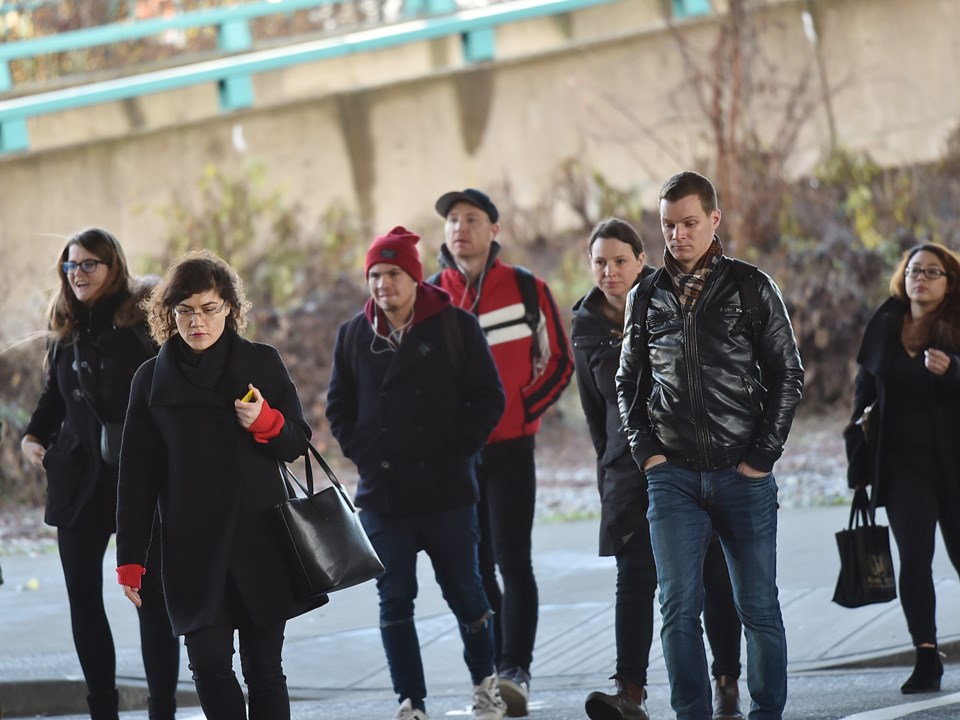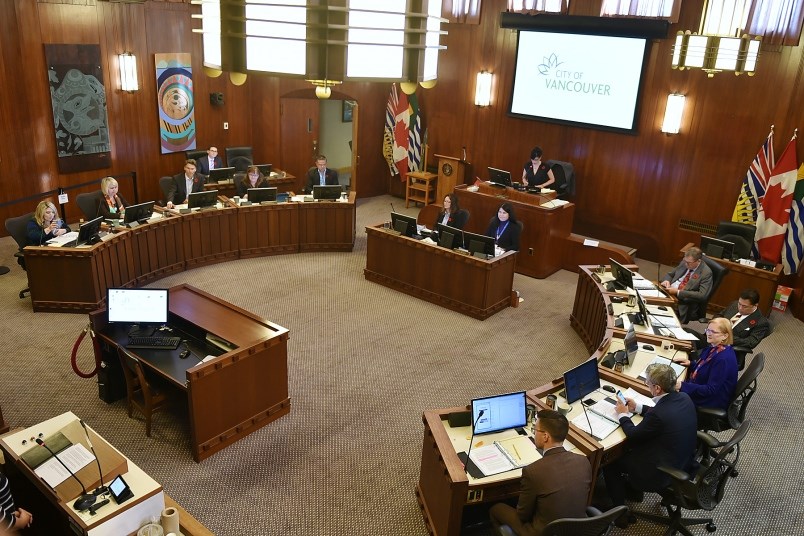Vancouver city council holds its first meetings of 2018 this week and will likely make decisions on a proposed separated bike lane for the Cambie Bridge and on a major social housing project planned for the Downtown Eastside.
Council will also get an update on the opioid crisis from Dr. Patricia Daly, the chief medical officer for Vancouver Coastal Health, and learn more about the city’s gender equality strategy, which first launched in 2005.
Here's a brief rundown of what's up for discussion:
Cambie bike lane
The bridge’s shared path on the east side of the span, which is quite wide and constructed that way to accommodate crowds going to and from B.C. Place Stadium, is "frequently too busy for those walking and cycling to feel safe and comfortable sharing the same space," said the staff report, which goes before council Wednesday.
The city's active transportation team wants a new southbound separated bike lane built to reduce conflicts and improve safety.
"The new protected bike lane would be achieved by reallocating a section of one of the bridge's three southbound travel lanes and a portion of the extra width on the southbound-to-westbound vehicle ramp at the south end of the bridge," the report said. "Since the motor vehicle capacity of the bridge is governed by the capacity of the traffic signals at either end, this change would have a minimal impact on motor vehicle capacity."
If council goes for it, the lane will be built in the first half of this year.
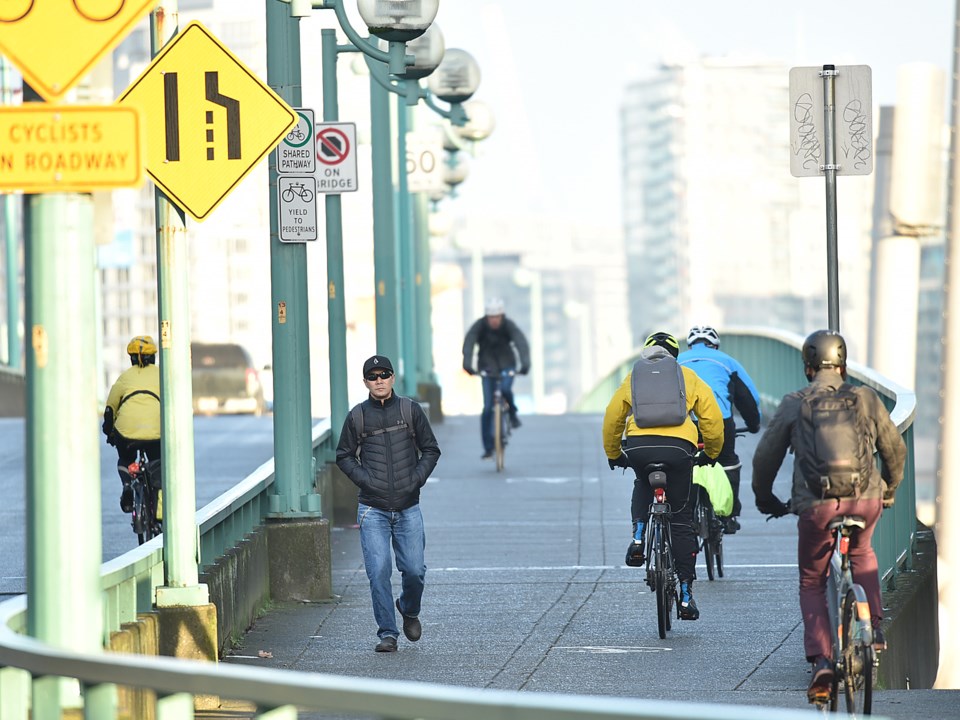
58 West Hastings St.
The Vancouver Chinatown Foundation (prospective lease holder) on behalf of the city (the land owner) and Vancouver Coastal Health (prospective health care operator) wants to rezone the property at 58 West Hastings St. to allow for a 10-storey mixed-use building.
Commercial space and medical offices are planned for the first three floors and 231 social housing units would be spread over seven floors above.
This is the same project that Mayor Gregor Robertson committed to have 100 per cent of the housing rent at welfare and pension rates. Robertson made that promise by signing a pledge in August 2016 before housing advocates in the Downtown Eastside.
So far, it doesn't look like Robertson will fulfill his pledge, as the staff report indicates.
"The application is expected to deliver a minimum of 77 units to be rented at the shelter component of income assistance or at pension rates for seniors, but a considerable funding contribution from senior levels of government will be required to cover capital, operational and support services funding in order to achieve greater levels of affordability," the report said. "Given the new B.C. provincial government, it is anticipated that next provincial budget will provide more clarity around potential funding for this project, in time for the operational decisions that accompany the separate approval by council of the property lease."
A big turnout is expected for this one Tuesday night. The hearing begins at 6 p.m., with the proposal scheduled as the second item on the agenda.
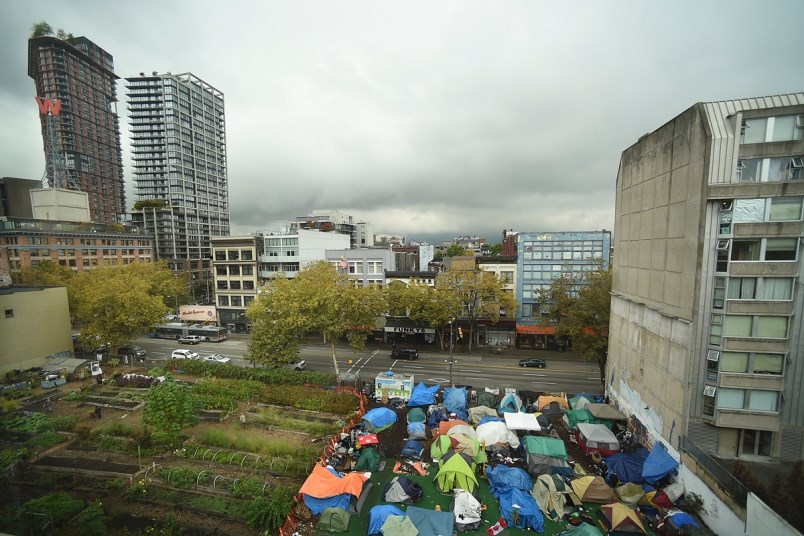
Opioid crisis update
Expect to hear more about the "overdose emergency response centre," which began operating Dec. 1 at Vancouver General Hospital.
The centre is led by experts from health, law enforcement, First Nations communities and others working with five new regional response teams to coordinate and strengthen addiction and overdose prevention programs across the province.
Dr. Patricia Daly, the chief medical officer for Vancouver Coastal Health,will be joined by Dr. Mark Tyndall, the executive director of the B.C. Centre for Disease Control, and Fire Chief Darrell Reid, whose department continues to answer an unprecedented number of overdose calls in the city.
The BC Coroners Service's most recent statistics revealed more than 1,200 people in B.C. died of a suspected overdose between January and October of 2017.
A total of 300 deaths were recorded in Vancouver over the same period, although the coroners service noted the death toll could increase when toxicology tests are completed for other cases.
The update to council is scheduled for Wednesday.
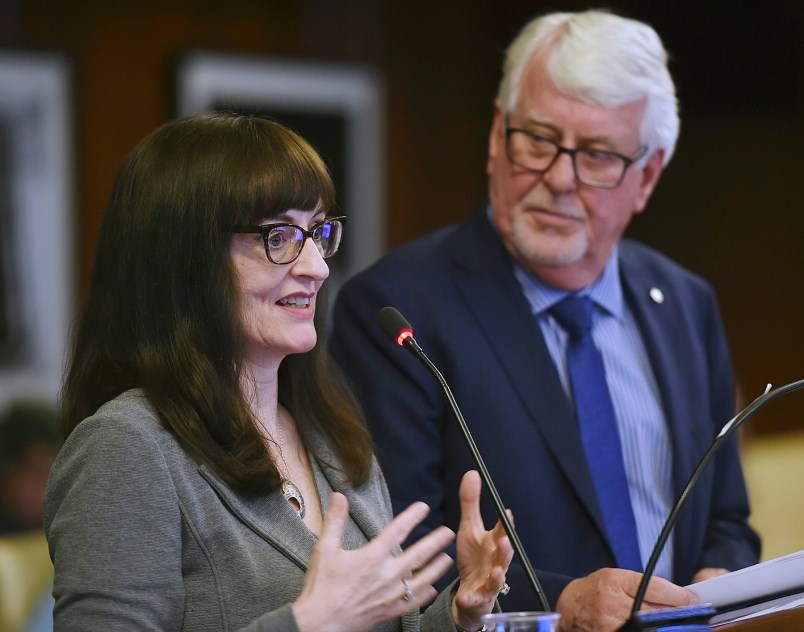
Gender equality
In 2005, city council adopted a "gender equality strategy," which provided a comprehensive snapshot of women's lives in Vancouver and recommendations to decrease the imbalance with men.
A council motion in 2016 requested staff, by way of the city's women's advisory committee, review the strategy's accomplishments and recommend more initiatives to improve the lives of women and girls.
This is what that motion said: "Women and girls comprise a majority of Vancouver residents [51 per cent] but on average have lower incomes, less housing security, more unpaid work, experience far greater rates of poverty and gender based violence and in general have less opportunities than men and boys."
The result of the review of the 2005 strategy is a report titled, Vancouver: A City for all Women, Women's Equity Strategy 2018-2028.
"The strategy reflects our vision to make Vancouver a place where all women and self-identified women have full access to the resources provided in the city and opportunities to fully participate in the political, economic, cultural and social life of the city," the report said.
Council will hear the report Tuesday at 9:30 a.m. before it hears from speakers the following day.
